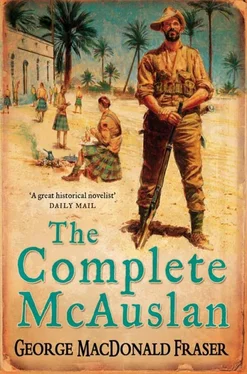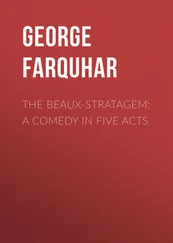Our performance, viewed from the bank, must have been something to see. I stood up to my waist in water against the fence, and Martin-Duggan climbed on my shoulders, and Hayhurst climbed on his, and I collapsed, and we all went under. We did this about five or six times, and the gallery hooted with mirth. Martin-Duggan, who was a proud sensitive soul, got mad, and swore at me and kicked me, and Hayhurst made a tremendous effort and got on to the top of the fence. He pulled Martin-Duggan up, and the pair of them tried to pull me up, too, but I wasn’t having any. I was rooted up to my middle in the sludge, and there I was going to stay, although I made it look as though I was trying like hell to get up.
They tugged and strained and swore, and eventually Martin-Duggan slipped and came down with a monumental splash, and Hayhurst climbed down as well. The spectators by this time were in hysterics, and when we had made three or four more futile efforts—during which I never emerged from the water once—the officer commanding the board leaned forward and said:
“Don’t you chaps think you’d better call it a day?”
I don’t know what Martin-Duggan, a mud-soaked spectre, was going to reply, but I beat him to it. Some heaven-sent inspiration struck me, because I said, in the most soapy, sycophantic, Eric-or-Little-by-Little voice I have ever used in my life:
“Thank you, sir, we’d prefer to finish the course.”
It must have sounded impressive, for the C.O. stood back, almost humbly, and motioned us to continue. So we did, floundering on with tremendous zeal and getting nowhere, until we were almost too weary to stand and so mud-spattered that we were hardly recognisable as human beings. And the C.O., bless him, leaned forward again, and I’ll swear there was a catch in his voice as he said:
“Right, that’s enough. Well tried. And even if you didn’t finish it, there’s one thing I’d like to say. I admire guts.” And all the examiners, writing for dear life, made muted murmurs of assent.
What they and the C.O. didn’t know was that my trousers had come off while we were still wading up the ditch, and that was why I had never budged out of the water and why we had never got up the fence. A good deal I had endured, but I was not going to appear soaked and in my shirt-tail before all the board and candidates, not for anything. And as we waded back down the ditch and out of sight round the bend, I told Martin-Duggan and Hayhurst so.
And we passed, I suppose because we showed grit, determination, endurance, and all the rest of it. Although with Selection Boards you never could tell. Only the three of us know that what got us through was the loss of my pants, and military history has been made out of stranger things than that.
The life of the very young officer is full of surprises, and perhaps the most shaking is the moment when he comes face to face with his men for the first time. His new sergeant stamps to a halt in front of him, salutes, and barks: “Platoon-presnready-frinspeckshun-sah!”, and as he clears his throat and regards the thirty still figures, each looking to its front with frozen intensity, the young subaltern realises that this is it, at last; this is what he is drawing his meagre pay for.
In later years he may command armies or govern great territories, but he will never feel again the same power-drunk humility of the moment when he takes over his platoon. It is elating and terrifying—mostly terrifying. These thirty men are his responsibility, to look after, to supervise, to lead (whatever that means). Of course, they will do what he tells them—or he hopes they will, anyway. Suppose they don’t? Suppose that ugly one in the front rank suddenly says “No, I will not slope arms for you, or shave in the morning, or die for king and country”? The subaltern feels panic stealing over him, until he remembers that at his elbow there is a sergeant, who is wise in dealing with these matters, and he feels better.
There are young officers, of course, who seem to regard themselves as born to the job, and who cruise through their first platoon inspection with nonchalant interest, conversing airily with the sergeant as they go; possibly Hannibal and Napoleon were like that. But I doubt it. A man would have to be curiously insensitive not to realise that for the first time in his life thirty total strangers are regarding him with interest and suspicion and anxiety, wondering if he is a soft mark or a complete pig, or worse still, some kind of nut. When he realises this he feels like telling them that he is, really, all right and on their side, but of course he can’t. If he did, they would know for certain he was some kind of nut. They will just have to find out about each other gradually, and it can be a trying process.
I have only a hazy impression of inspecting my platoon for the first time. They were drawn up in the sunlight with their backs to the white barrack wall, against which an Arab tea-vendor was squatting, waiting for the ten-minute break. But all I can remember is the brown young faces staring earnestly to their front, with here and there a trickle of sweat or a limb shaking with the strain of standing still. I remember telling one that he was smartly turned-out, and he gave a controlled shudder, like a galvanised frog, and licked his lips nervously. I asked another whether he had volunteered for this particular regiment, and he stammered: “Nossir, I wanted to go intae the coal-mines.”
Perhaps I was over-sensitive because I had been more than two years in the ranks myself, and had stood sweating while pinkish young men with one painfully new pip on their shoulders had looked at me. I remembered what I had thought about them, and how we had discussed them afterwards. We had noted their peculiarities, and now I wondered what mine were—what foibles and mannerisms were being observed and docketed, and what they would say about me later.
I don’t know what I expected from that first inspection—a rapturous welcome, three cheers, or an outbreak of mutiny—but what I got was nothing at all. It was a bit damping; they didn’t seem to react to me one way or the other. Maybe I should have made a speech, or at least said a few introductory words, but all that I could think of was Charles Laughton’s address to the crew of the Bounty , which ran: “You don’t know wood from canvas, and you evidently don’t want to learn. Well, I’ll teach you.” It wouldn’t have gone over.
So eventually I watched them fall out, and turn from wooden images into noisy, raucous young men crowding round the tea-man, abusing him happily in Glasgow-Arabic. One or two glanced in my direction, briefly, but that was all. I walked back to the company office, suddenly lonely.
The trouble was, of course, that in the exultation of being commissioned at the end of a hectic training in India, and the excitement of journeying through the Middle East and seeing the wonderful sights, and arriving in this new battalion which was to be home, I had overlooked the fact that all these things were secondary. What it all added up to was those thirty people and me; that was why the king had made me “his trusty and well-beloved friend”. I wondered, not for the first time, if I was fit for it.
It had seemed to go well on the day of my arrival. The very sound of Scottish voices again, the air of friendly informality which you find in Highland regiments, the sound of pipe music, had all been reassuring. My initial discomfort—I had arrived with two other second-lieutenants, and while they had been correctly dressed in khaki drill I had still been wearing the jungle green of the Far East, which obviously no one in the battalion had seen before—had quickly blown over. The mess was friendly, a mixture of local Scots accents and Sandhurst drawls, and my first apprehensions on meeting the Colonel had been unfounded. He was tall and bald and moustached, with a face like a vulture and a handkerchief tucked in his cuff, and he shook hands as though he was really glad to see me.
Читать дальше












